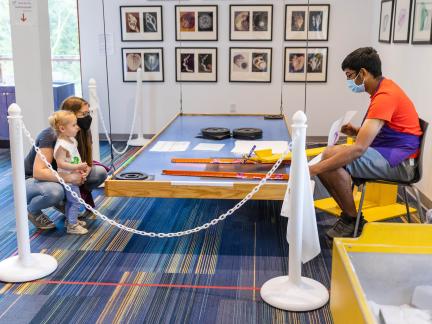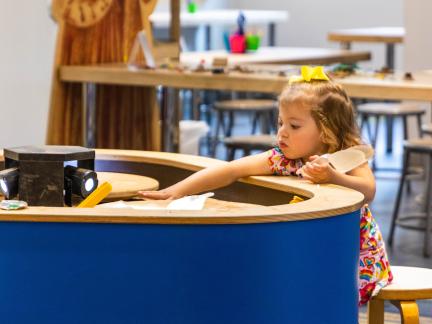Fostering Critical Thinking: Open-ended Questions
Children must be taught how to think, not what to think. —Margaret Mead
As an early childhood educator who came to that career later in life, I was on a learning curve when I came into the classroom. Critical thinking was a buzz phrase thrown around frequently as an important skill for success because it allows students to think deeply. I learned that coaching children early not to accept the first answer or solution to a problem will continue to serve them well as they grow emotionally and academically.
We can start helping our grands with how to think critically very early. One of my most loved strategies is asking open-ended questions to young children instead of closed questions. A closed question allows young children to provide one word or yes/no responses; an open-ended question allows young children to think more deeply about the topic and encourages the beginning of language they can use to describe situations and feelings.
What does this look like? Instead of asking “Do you like ice cream?” you could ask, “What is your favorite kind of ice cream?” or, “Why do you like ice cream?” or, “What’s the best thing about ice cream?”.
When I was teaching Kindergarten, each day we would send parents an email called “Conversation Starters” with a list of questions about what we had worked on in the classroom that day. This enabled parents to have rich conversations with their children about what happened in the classroom. By answering open-ended questions, children will begin to expand their vocabularies, talk about their feelings, and express themselves in a meaningful conversation.
Are there ways you have been successful at getting your grand(s) to share stories about their day or activity? If you have more than one grand, do you find different approaches work better for each of them and if so, what are the approaches you use? Send me your questions, thoughts, and ideas through the comment box below or by email to gpdiscoveries [at] gmail.com (gpdiscoveries[at]gmail[dot]com).






Comments
Add new comment